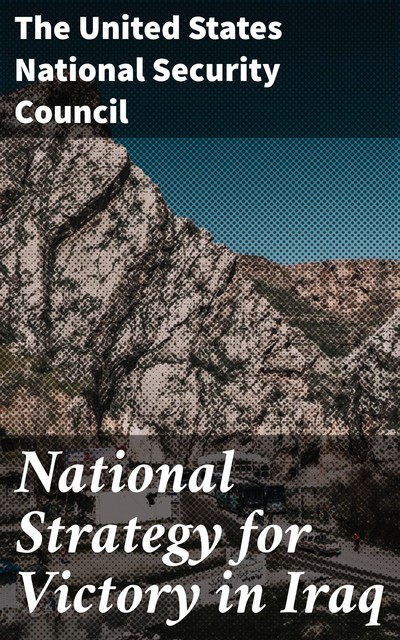The 'National Strategy for Victory in Iraq' presents a multifaceted approach to the U.S. mission in Iraq post-2003 invasion. Written in a policy-making context, this strategic document articulates a comprehensive framework to achieve victory and stability in the region, emphasizing military, diplomatic, and economic dimensions. Its authoritative tone and structured analysis reflect the challenges faced by American forces and the urgent need for coherent strategies to address terrorism, sectarian conflict, and the rebuilding of Iraq's institutions. The document serves not only as a blueprint for military engagement but also as a historical artifact of U.S. foreign policy during a pivotal moment in the early 21st century. The United States National Security Council, the principal advisory body to the President on national security and foreign policy, represents a culmination of expertise and experience in strategic planning. This document reflects collaborative efforts among key governmental players committed to ensuring a successful transition of power and the establishment of a stable Iraqi government. Insights derived from the Council's work reveal the complexities and ethical imperatives involved in executing foreign policy decisions, particularly in war-torn regions. 'National Strategy for Victory in Iraq' is essential for scholars, policymakers, and students of international relations and military strategy. Its rich, pragmatic insights offer a lens through which to understand the interplay between military action and diplomatic efforts in a deeply fragmented socio-political landscape. Readers will gain a thorough comprehension of the concepts and strategies that underpinned U.S. efforts in Iraq, making it an invaluable resource for anyone engaging with contemporary security studies.


